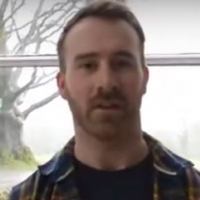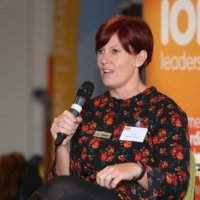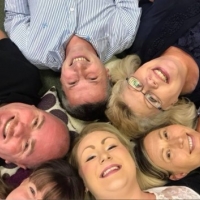Getting to grips with ZOOM as a learning platform
In our latest blog, Leadership Development Specialist Tony Burnett discusses how he's getting to grips with Zoom as a learning platform.
In an attempt to relax the audience and encourage them to participate, I invariably begin learning events with the timeless quote from Plato:
“I am the wisest man alive, for I know one thing, and that is that I know nothing”.
At ION leadership we facilitate and deliver experiential executive education to business leaders and senior managers in Wales. This happens face-to-face, and we are firm believers in the power of the relationships we build with our delegates, and they build with each other. Since going into lockdown, we have had to look at doing things differently, in a virtual world.
My initial questions after facilitating, leading and being involved with several Zoom business meetings, webinars and learning events are worth noting at this point, in the ‘new normal’. Even if this blog serves only to initiate further discussion and ideas with colleagues who are in a similar situation as myself, and other ION Leadership team members, it would be fantastic to hear how others are getting to grips with Zoom as a learning platform.
My simple framework to assess these initial thoughts around Zoom focuses on the “WH” questions and the use of Socratic questioning (he was Plato’s teacher after all!):
When?
- What time should the event start and what time should it finish? Is that too long? Not long enough?
- Does the timing suit the audience in terms of their workload? Morning? Afternoon? Lunchtime? Evening? Once the kids are in bed?
- How long are people’s attention spans? Should changes in the pace and dynamic of the meeting consider attention spans?
What?
- Are the event objectives clear to everyone attending?
- What is the main theme of the meeting or event? Are we trying to cover too big a theme or just giving people an overview? And is that clear?
- How many agenda items should be included in the event or meeting?
- How can the Zoom tools be best utilised to give the event or meeting variety? Breakout rooms? Chat? Polls? Media sharing?
- How will we assess the quality of the meeting or event?
Who?
- Will everybody in the audience benefit from participating?
- Why have people opted not to come to this meeting or event, who probably would benefit from it?
- Are the benefits of the meeting or event taking into consideration the social need for interaction?
Why?
- What difference will the meeting or event make?
- What actions will people take as a result of the meeting? So what?
- Will the attendees be engaged and do something as a result?
Whether used as a planning checklist or as part of a post-event survey, as we say at ION, we are always learning. And we will continue to do so as we get to grips with Zoom as a learning platform.
Any questions to add?
I am sure Plato would.






.jpg)
Comments